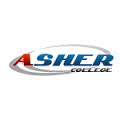What do they do?
Compute, classify, and record numerical data to keep financial records complete. Perform any combination of routine calculating, posting, and verifying duties to obtain primary financial data for use in maintaining accounting records. May also check the accuracy of figures, calculations, and postings pertaining to business transactions recorded by other workers.
Also known as:
Account Clerk, Account Receivable Clerk, Accounting Assistant, Accounting Associate, Accounting Clerk, Accounting Coordinator, Accounting Representative, Accounting Specialist, Accounting Technician, Accounts Payable Clerk, Accounts Payable Coordinator, Accounts Payable Specialist, Accounts Payables Clerk, Accounts Receivable Assistant, Accounts Receivable Clerk, Fiscal Technician
-
-1.1%
Change
Ranks #54 in job growth rate6,640Job Openings
Ranks #11 in net job growth
Looking for colleges that offer a specific major? Use the College Match Tool to find your best-matched schools and discover your estimated Net Price!
- Some college, no degree (36%)
- High school diploma equivalent (27%)
- Bachelor's degree (17%)
- Associate's degree (13%)
- Less than high school diploma (4%)
- Master's degree (3%)
- Doctorate or Professional Degree (<1%)
People in this career often know a lot about:
- Customer and Personal Service - Knowledge of principles and processes for providing customer and personal services. This includes customer needs assessment, meeting quality standards for services, and evaluation of customer satisfaction.
- Administrative - Knowledge of administrative and office procedures and systems such as word processing, managing files and records, stenography and transcription, designing forms, and workplace terminology.
- Mathematics - Knowledge of arithmetic, algebra, geometry, calculus, statistics, and their applications.
- English Language - Knowledge of the structure and content of the English language including the meaning and spelling of words, rules of composition, and grammar.
- Economics and Accounting - Knowledge of economic and accounting principles and practices, the financial markets, banking, and the analysis and reporting of financial data.
People in this career often have talent in:
- Oral Comprehension - The ability to listen to and understand information and ideas presented through spoken words and sentences.
- Written Comprehension - The ability to read and understand information and ideas presented in writing.
- Mathematical Reasoning - The ability to choose the right mathematical methods or formulas to solve a problem.
- Near Vision - The ability to see details at close range (within a few feet of the observer).
- Written Expression - The ability to communicate information and ideas in writing so others will understand.
- Oral Expression - The ability to communicate information and ideas in speaking so others will understand.
- Problem Sensitivity - The ability to tell when something is wrong or is likely to go wrong. It does not involve solving the problem, only recognizing that there is a problem.
- Number Facility - The ability to add, subtract, multiply, or divide quickly and correctly.
People in this career often do these activities:
- Maintain financial or account records.
- Operate computers or computerized equipment.
- Execute sales or other financial transactions.
- Verify accuracy of financial or transactional data.
- Compile data or documentation.
- Prepare cash for deposit or disbursement.
- Monitor organizational compliance with regulations.
- Calculate financial data.
- Operate office equipment.
- Collect deposits, payments or fees.
- Monitor financial information.
- Reconcile records of sales or other financial transactions.
- Code data or other information.
- Answer telephones to direct calls or provide information.
- File documents or records.
- Convert data among multiple digital or analog formats.
- Search files, databases or reference materials to obtain needed information.
- Prepare documentation for contracts, transactions, or regulatory compliance.
- Calculate costs of goods or services.
- Maintain inventory records.
This page includes data from:

 Occupation statistics: USDOL U.S. Bureau of Labor Statistics Occupational Employment Statistics
Occupation statistics: USDOL U.S. Bureau of Labor Statistics Occupational Employment Statistics
 Videos: CareerOneStop, USDOL/ETA and the Minnesota Department of Employment & Economic Development
Videos: CareerOneStop, USDOL/ETA and the Minnesota Department of Employment & Economic Development













